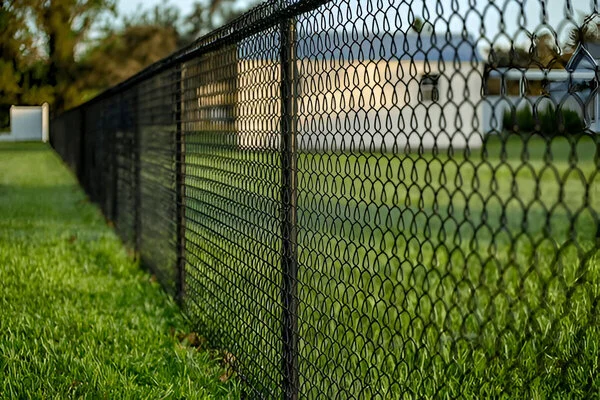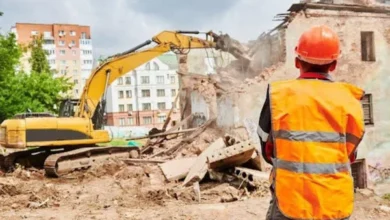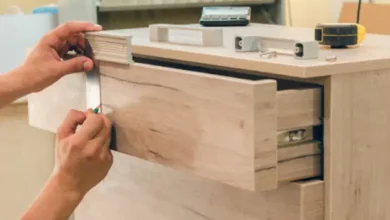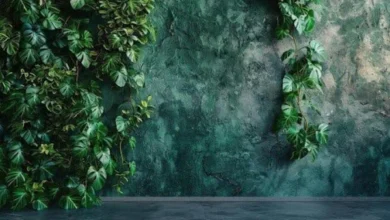Best Fence Materials for Chester VA Weather: Wood vs. Vinyl vs. Metal

People who live in Chester are used to hot summers, cold winters, and everything in between. Virginia’s weather is always changing, and your fence takes a beating.
If you choose the wrong material, you could end up spending thousands of dollars on fixes or a new fence before it’s time.
Reliable local fence company understand how Virginia’s humid subtropical climate affects different materials, and that knowledge makes all the difference.
With 43 inches of rain a year, freeze-thaw cycles, and very hot summers, Chester’s environment makes smart material choices necessary. Let’s look at how well wood, vinyl, and metal fences work in our particular weather.
Understanding Chester’s Weather Challenges
The weather in Virginia throws everything at your fence. In the summer, temperatures often reach the upper 80s, and the high humidity speeds up the breakdown of materials.
The freeze-thaw processes of winter make the ground expand, which puts a lot of stress on fence posts.
Our clay-rich soils keep water around foundations, which means that if you choose the wrong material, your fence will fail.
Mold, mildew, and rot can grow easily because of the constant contact to water. UV light from the hot summer sun can fade and break down materials.
These aren’t just small annoyances; they’re expensive problems that can be avoided by choosing the right materials.
Wood Fencing: Classic but High-Maintenance
There’s a good reason why wood is still popular. It’s cheap at first, looks natural, and can be changed in any way you want. In Virginia, a wood fence can last 15 to 20 years if it is installed and cared for properly.
But the truth is that wood needs your care. Most pressure-treated wood lasts between 10 and 15 years, but natural oils and tannins in cedar can make it last up to 30 years.
It’s important to place the posts correctly so they are below the 18–24-inch frost line and the concrete footings keep the posts from touching the ground.
The humidity in Virginia causes things to constantly expand and contract, which makes boards and parts loose. Moisture intake causes things to warp, rot, and grow that ugly mold.
In the summer, UV damage fades colors and makes wood break easily. Don’t forget about termites and carpenter ants; they love the damp weather in Virginia.
Every year, wood needs to be checked for harm and loose hardware. Every two to three years, you’ll need to clean and stain it, fix any broken boards right away, and keep the plants cut so air can flow.
Pick pressure-treated wood or cedar that is naturally durable, and spend money on good stain and sealant to protect against UV light and water.
Vinyl Fencing: The Low-Maintenance Winner
Vinyl does great in Virginia’s weather. It won’t bend, rot, or break when it freezes and thaws, and it can handle five times as much weight as wood does.
Good vinyl is made with UV-resistant chemicals that keep it from discoloring, so it will last for 25 years or more with little upkeep.
The benefits of the climate are amazing. Vinyl doesn’t warp or stretch like wood does. Its waterproof surface keeps mold and mildew away, and you’ll never have to paint, stain, or seal it again. The heat in Virginia doesn’t change anything.
What are the cons? In very cold weather, vinyl can become brittle, and cheaper vinyl may fade in bright sunlight. Most of the time, repairs mean changing whole panels instead of just fixing a few boards.
Instead of white, pick earth tones like tan, gray, or chestnut for Chester setups. Look for high-quality PVC that doesn’t fade in UV light, and make sure the installer leaves enough space for growth.
Metal Fencing: Built to Last
Metal fence works better in all kinds of weather. Steel and aluminum don’t expand and shrink like some other materials do.
They also do very well in harsh winter conditions and don’t get damaged. Based on the type and finish, metal fences can last 20 to 50 years or more.
Aluminum is great for home use because it is light and doesn’t rust. Steel is the strongest material, and powder-coated treatments keep it from rusting. The look of wrought iron is more classic, but it needs more upkeep.
Because it is hot in Virginia, finishes must be galvanized or powder-coated. Rust doesn’t happen at ground level if there is good draining around the posts, and damage to the coating can be found and fixed before it costs a lot.
Metal needs to be checked for rust or covering damage once a year and painted over every so often. Still, it’s much easier to keep up than wood.
The Real Comparison
When you put two things next to each other, you can see how they are different:
Wood lasts about 15 to 20 years and isn’t too sensitive to weather, but it needs a lot of upkeep. It’s the cheapest at first, but it costs more in the long run.
Vinyl lasts for 25 years or more, is very resistant to weather, and doesn’t need much upkeep. More expensive at first, but worth it in the long run.
Metal lasts 20 to 50 years or more, is very resistant to weather, and needs little to moderate care. Premium prices, but very long longevity.
In Chester’s historic streets, cedar wood or wrought iron keeps things looking real. Vinyl is easy to maintain, which is good for suburban projects.
Split-rail wood or steel works well for rural sites because it lasts a long time. Aluminum is needed around pools to make them safer and last longer.
Making the Right Choice
Your budget is important, but so is the way you live. Homeowners on a tight budget can do well with pressure-treated pine and regular upkeep.
Vinyl of good quality and long warranties are good for funds in the middle. For high-end prices, you can use powder-coated steel or cedar wood.
Remember that the weather in Virginia makes hiring a professional installer well worth the money. Drainage is a must for any fence that wants to last as long as it’s supposed to.
When choosing contractors, look for ones with experience in the area and stay away from those who don’t know about the soil conditions and frost line requirements in Chester.
Seasonal Maintenance Matters
In the spring, things need to be checked and cleaned thoroughly. Summer means protecting yourself from UV rays and taking care of plants.
Fall needs steps to get ready for winter. Getting rid of snow carefully and avoiding damage are important in the winter.
In the end? Your fence will be in bad weather all the time in Virginia, so pick materials that can handle it.
This is true whether you choose traditional wood, low-maintenance vinyl, or long-lasting metal. If you put it correctly and keep it in good shape, it will last for decades.
Companies like Dubon Fencing & Polish Concrete LLC have been in Chester for more than 15 years and know how to deal with its unique problems.
Their knowledge shows in every installation. The materials you choose and the person who builds your fence are the only things that matter.
Doc Louallen: The Story of a Reporter, Advocate, and Community Leader




